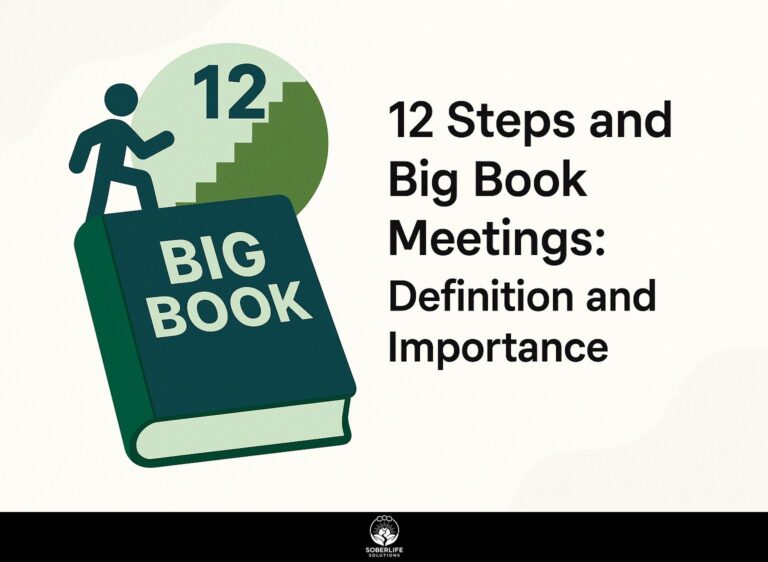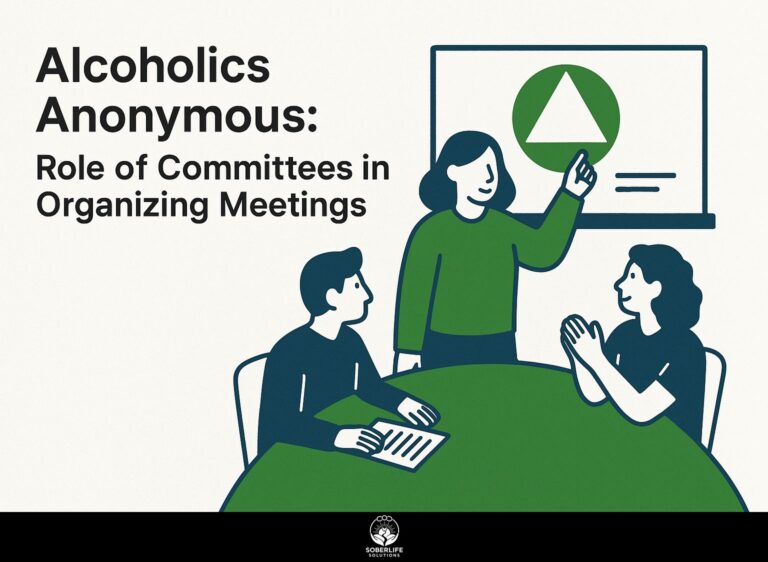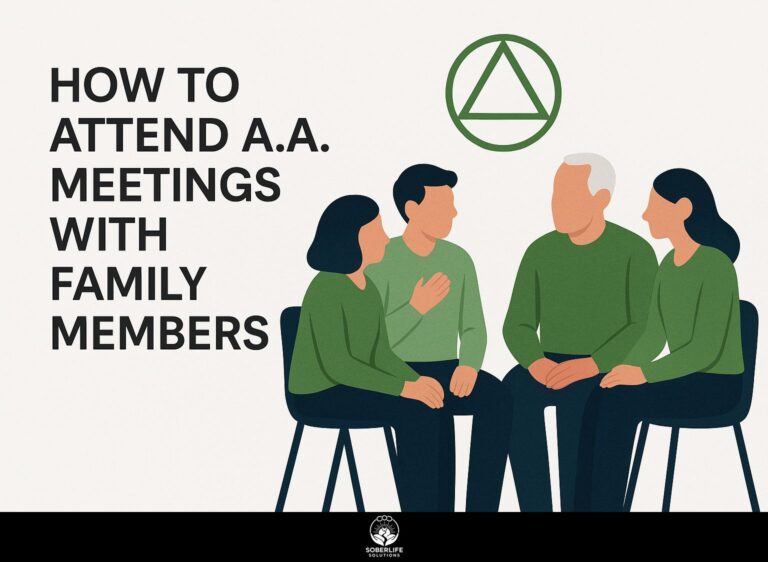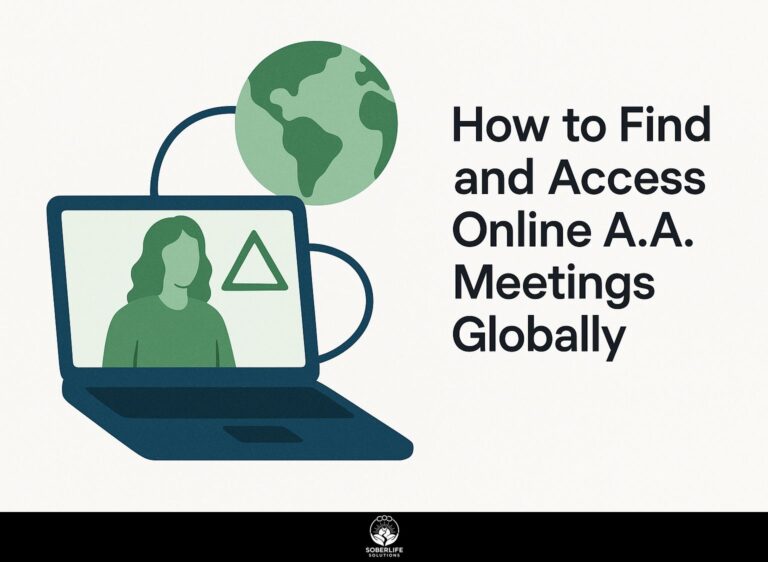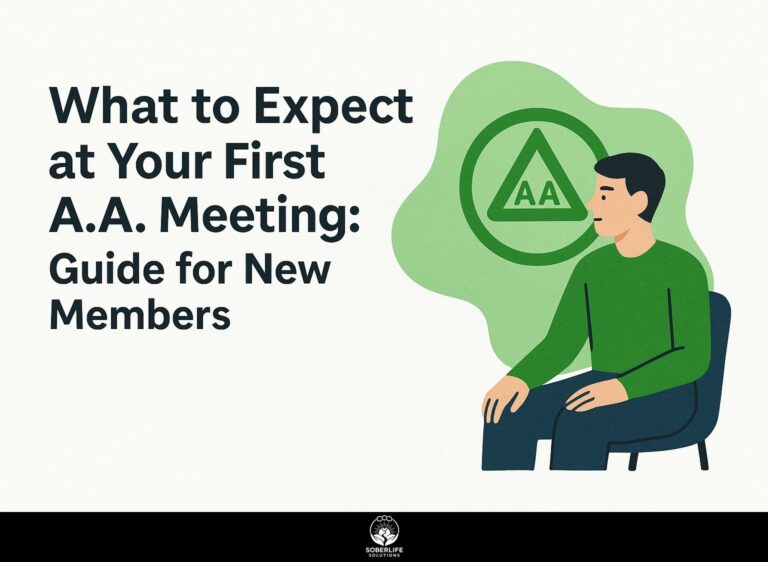Women’s Nooner Meetings: Purpose and Participation
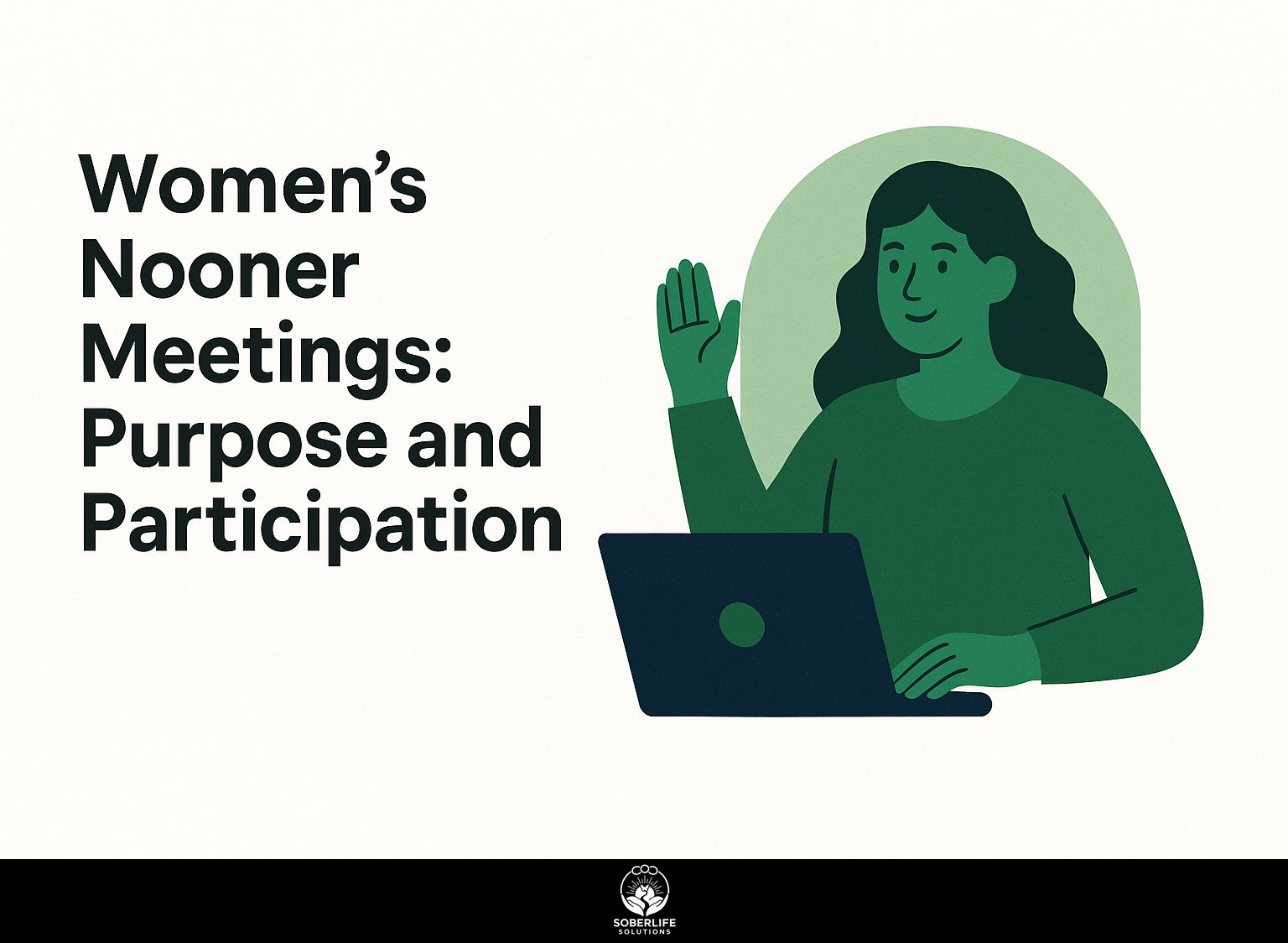
In Alcoholics Anonymous, Women’s Nooner Meetings provide a special place for women working through their recovery. Led by inspiring figures like Mary Agnes and Nicky, these gatherings emphasize the 12-step model while focusing on the female experience. By participating, women receive important help and motivation, forming connections that assist them in maintaining sobriety. Read this article to learn about the goals, setup, and advantages of these important meetings.
Key Takeaways:
Purpose of Women’s Nooner Meetings
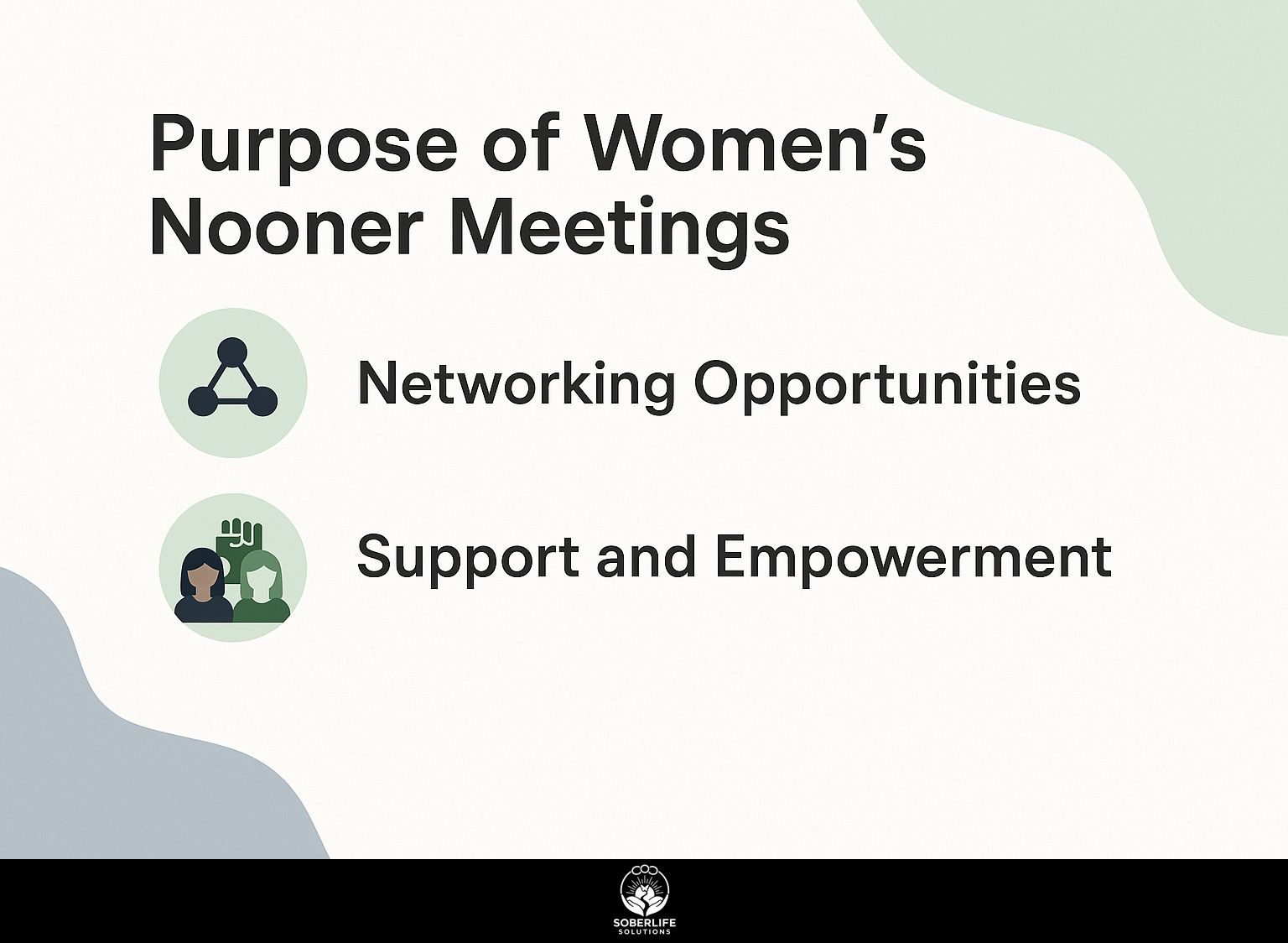
These meetings help women by sharing their experiences and offering a specific space to talk about the challenges they face in recovery. Some leading researchers in the field have suggested that these gender-specific sessions may be particularly effective, as noted by a study published in Frontiers in Psychiatry. For those interested in more strategies to overcome recovery challenges, see also Peer Support Groups: Strategies for Networking, Leadership, and Overcoming Challenges.
Networking Opportunities
Networking chances at Women’s Nooner Meetings allow participants to meet others, creating strong support systems that help with recovery efforts.
To build lasting relationships beyond the meetings, women can exchange contact information and set up regular check-ins.
For instance, utilizing apps like GroupMe or WhatsApp can keep communication ongoing, allowing for shared experiences and encouragement.
Forming accountability partnerships is another effective strategy; two attendees might agree to check in daily about their recovery goals or challenges.
There are many stories of partners working together in activities like therapy sessions or support groups, which really help both people recover. As mentioned, the importance of such peer support networks for recovery cannot be overstated, as they provide a crucial foundation for long-term success.
Support and Empowerment
The support in these meetings focuses on encouraging women to take control of their stories as they recover from alcohol addiction and emotional distress.
These meetings create a welcoming space where people can feel safe to be honest and open.
Programs like art therapy and mindfulness workshops can help people understand their emotions and express themselves in creative ways.
Bringing in guest speakers who have dealt with similar issues can create optimism and a sense of unity.
Sharing personal stories confirms experiences and highlights how community is important in recovery, allowing participants to talk about their own stories and healing steps.
Structure of the Meetings
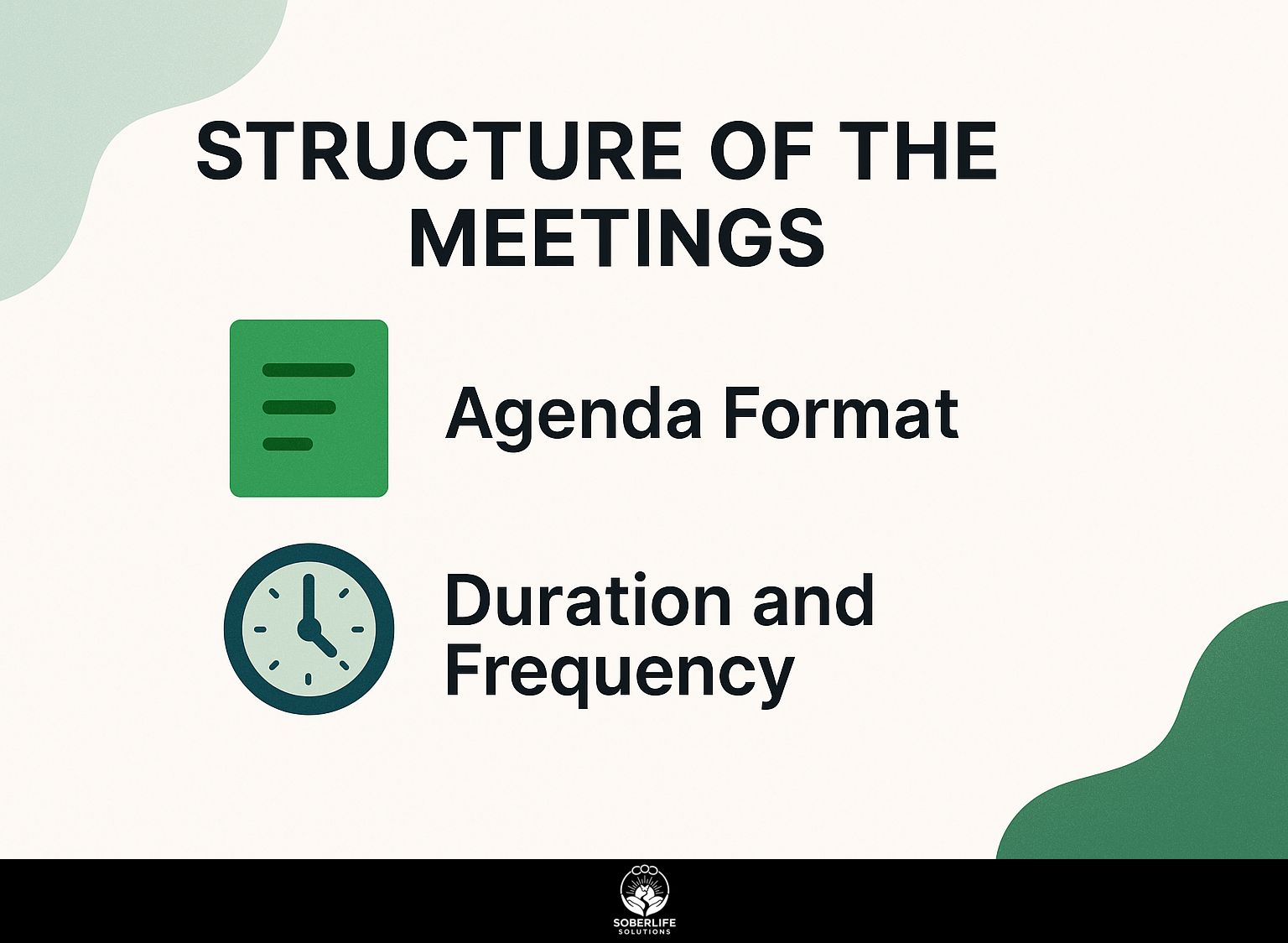
Women’s Nooner Meetings follow a planned approach that can change as needed to support the unique needs of women in recovery. These meetings are just one format among many that can aid in the recovery process. Understanding the diverse formats and benefits of A.A. meetings can enhance your recovery journey.
Agenda Format
Each meeting typically follows a consistent agenda that may include readings from The Big Book, sharing sessions, and focused discussions on recovery topics.
A typical meeting agenda might be structured as follows:
- Start with a 10-minute reading from The Big Book to provide inspiration.
- Afterward, there is a 30-minute discussion where participants talk about their experiences and thoughts.
- Allocate 15 minutes for a focused discussion on specific recovery themes, such as coping strategies or relapse prevention.
This format promotes accountability by encouraging individuals to think about their personal struggles and achievements, strengthening a helpful community that supports their recovery.
Duration and Frequency
Women’s Nooner Meetings are typically held weekly for one hour, offering consistent support for participants’ recovery processes.
Going to these meetings regularly encourages accountability and helps develop strength through shared experiences.
Participants access important resources like learning materials and community help, which can improve their recovery. These gatherings often feature mentorship from experienced individuals who provide guidance and inspiration.
For example, women might team up with a mentor for personal conversations, creating stronger relationships. In this organized and helpful setting, participants can learn methods to manage challenges, giving them confidence in their recovery process.
Participation Guidelines
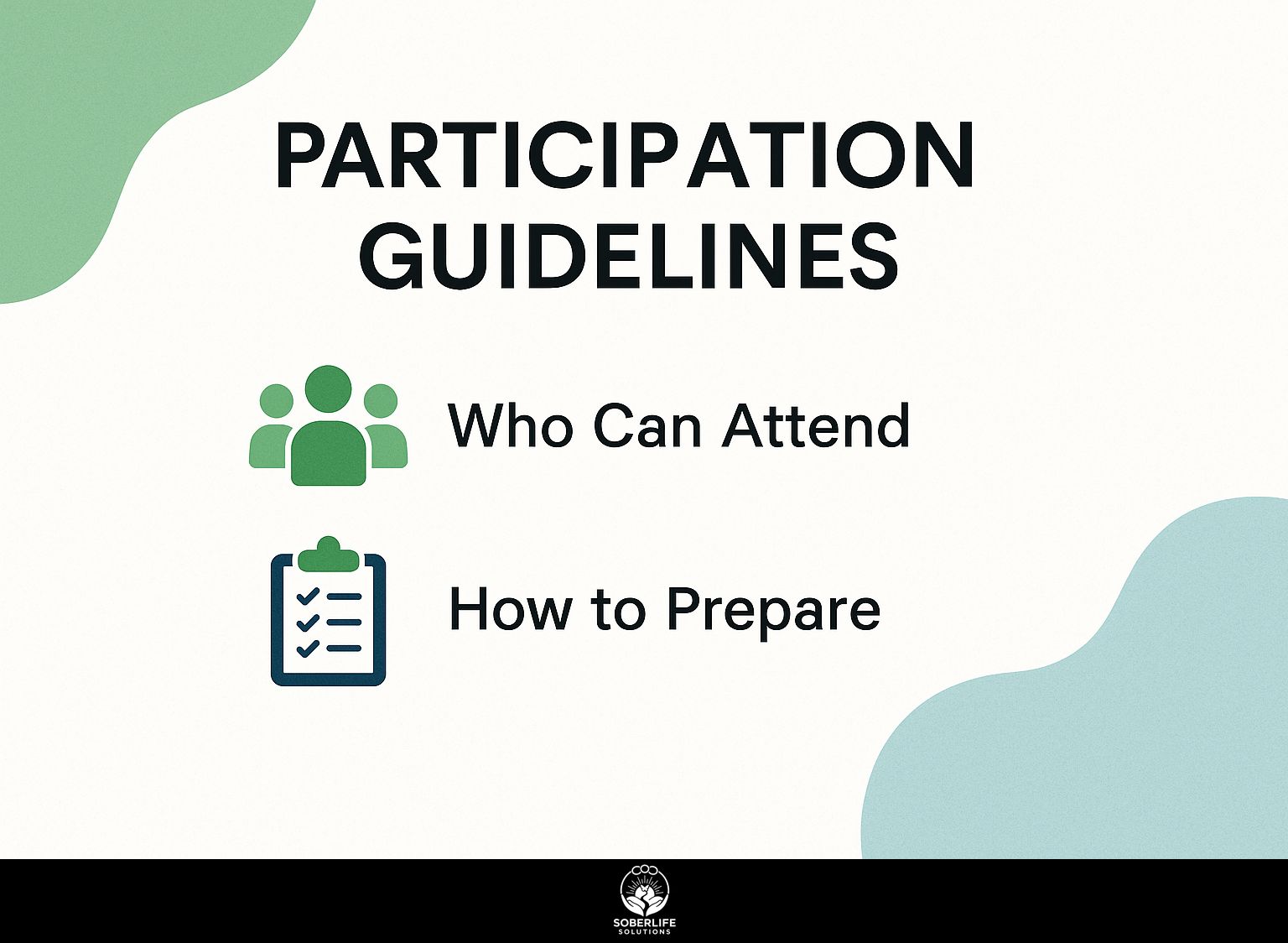
To encourage a welcoming and helpful setting, rules specify who can join Women’s Nooner Meetings. Curious about how different types of A.A. meetings can benefit participants? Our analysis explains the key factors.
Who Can Attend
All women looking for support in their recovery, no matter how long they have been sober, are invited to join these meetings.
These meetings are inclusive and specifically welcome women from mixed-gender Alcoholics Anonymous backgrounds, creating a supportive space for sharing experiences and building connections.
Women looking into treatment choices, like those offered at Casa Capri Recovery, will find helpful information and support here. Participants can take part in talks about different recovery methods, from 12-step programs to overall health practices, helping each person find the best way for their personal recovery needs.
How to Prepare
Getting ready for a Women’s Nooner Meeting can make the event better by helping participants connect more with the group.
To make the most of your Women’s Nooner Meeting, consider the following actionable strategies.
- To start, think about the personal stories you want to tell; this approach helps you to be genuine and relate to others.
- Next, bring a notebook to write down your thoughts, feelings, and observations during discussions.
- Think about specific topics you wish to discuss, enabling deeper dialogues.
- Talk with other participants afterward to build relationships and consider new ideas, improving the group’s interactions and individual development.
Benefits of Participation
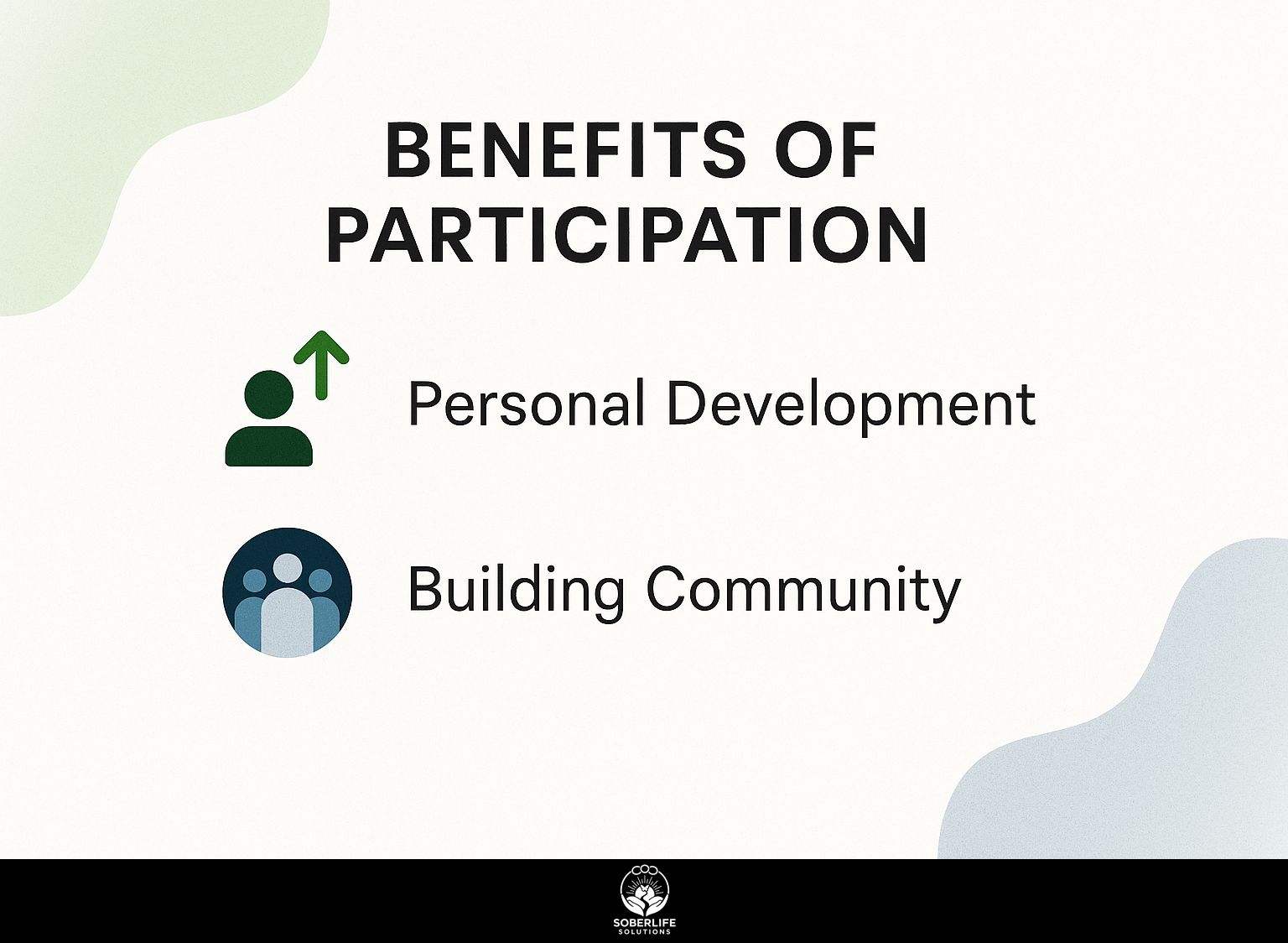
Joining Women’s Nooner Meetings offers many benefits, improving personal growth and creating a supportive community for women in recovery. For an extensive analysis of this trend, our comprehensive study on peer support groups delves into their definition, benefits, and activities.
Personal Development
Women joining Nooner Meetings frequently say they grow a lot, becoming better at thinking about themselves and handling their emotions.
Through organized talks and help from others, participants learn how to communicate better and build stronger relationships with their peers.
Techniques such as active listening and open-ended questioning are emphasized, allowing women to express themselves freely while also learning to validate others’ feelings.
Tools like journaling can further aid self-reflection, encouraging participants to process their thoughts and emotions outside of meetings.
By sharing personal experiences, they help each other learn and form a supportive group that aids their emotional growth and promotes recovery.
Building Community
When women attend regularly, they form strong community ties that provide important support during their recovery.
This peer support significantly impacts sobriety success rates, with studies showing that individuals who engage in group activities have a 50% higher chance of maintaining recovery after one year.
Participants often share testimonials highlighting the friends they’ve made, emphasizing how these relationships offer emotional stability and accountability. For instance, one participant expressed that her recovery blossomed when she found a supportive circle, turning meetings into a safe haven.
These connections help people feel less lonely and more included, which supports staying sober, as noted in a study by ScienceDirect exploring the role of peer workers in alcohol recovery ( source).
Frequently Asked Questions
What are Women’s Nooner Meetings?
Women’s Nooner Meetings are informal gatherings for women that take place during the lunch hour. They are focused on providing a safe and supportive environment for women to come together and discuss various topics.
What is the purpose of Women’s Nooner Meetings?
The Women’s Nooner Meetings are intended to build a sense of community and connection among women. It also serves as a space for women to discuss important issues, share experiences, and support each other.
Who can participate in Women’s Nooner Meetings?
Any woman who is interested in connecting with other women and engaging in meaningful discussions is welcome to participate in Women’s Nooner Meetings. There are no restrictions or requirements for participation.
Are Women’s Nooner Meetings only for working women?
No, Women’s Nooner Meetings are open to all women regardless of their employment status. Whether you are a working professional, a student, a stay-at-home mom, or retired, you are welcome to join and participate in the meetings.
What topics are discussed in Women’s Nooner Meetings?
The topics discussed in Women’s Nooner Meetings vary and can range from personal experiences to current events. Some common topics include work-life balance, self-care, relationships, and gender equality. Notably, gender equality remains a significant area of focus, as highlighted by research findings from the World Economic Forum, which provides a comprehensive overview of global disparities.
Is it necessary to go to each Women’s Nooner Meeting?
You do not have to go to every Women’s Nooner Meeting. Feel free to join us at any time that works for you and when you feel at ease. We suggest joining in often to help grow a better community feeling for everyone involved.

